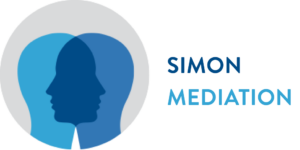ABOUT TRANSFORMATIVE DIALOGUE
What Is A Transformative Dialogue?
Transformative Dialogue is a process in which a facilitator works with communities and groups in conflict to co-create a process that supports changes in the quality of people’s interactions, increasing the amount of pro-social interaction.
What Is Pro-Social Interaction?
Pro-social interaction means, regardless of how often or seldom they interact, people
- Interact from a position of clarity and strength
- Are open/responsive/able to give recognition to others whether they agree or have deep disagreements
Pro-social interaction does not necessarily mean agreement, reconciliation, friendship or the establishment of intimacy, though any of these are possible. What does or does not happen as a result of the interaction is up to the parties.
What Does A Transformative Dialogue Accomplish?
As people in a Transformative Dialogue talk about the things they need and want to talk about, the increase in pro-social interaction allows them to hear and be heard in ways that have not been possible before. Transformative Dialogue can allow people to:
- Choose identities and interactions that have been closed for them
- Recognize the humanity of others, as individuals and members of groups, even when they continue to disagree
- Establish positive and constructive interactions with people who are unlike them or from “the other side” and help them decide how to interact with those people in the future
- Make decisions individually or as members of groups
Sometimes the sole purpose of a dialogue is to allow participants to rethink interactions and relationships. Other times dialogues allow participants to develop plans for the future of their communities and/or action plans for specific projects.
What Happens During a Transformative Dialogue?
Each Transformative Dialogue is unique, since it is shaped by participants in ways that allow them to accomplish their particular goals. Transformative Dialogues often include a full range of human interactions including
- Respectful listening
- Story-telling
- Debate
- Negotiation, sometimes of very specific plans
While co-creating a particular dialogue, a facilitator engages with participants in different ways: one-on-one interactions, small group conversations and conversations with large groups. These conversations may be among those with similar perspectives, interests or identities group or among those with differences.
Who Attends A Transformative Dialogue?
Participants may include those who come independently as well as those who come as members of groups, social networks, organizations or institutions.
In some dialogues, the same people are involved from start to finish and may be representing or reporting back to others who share their concerns. In others, different people participate at different times and in different ways.

